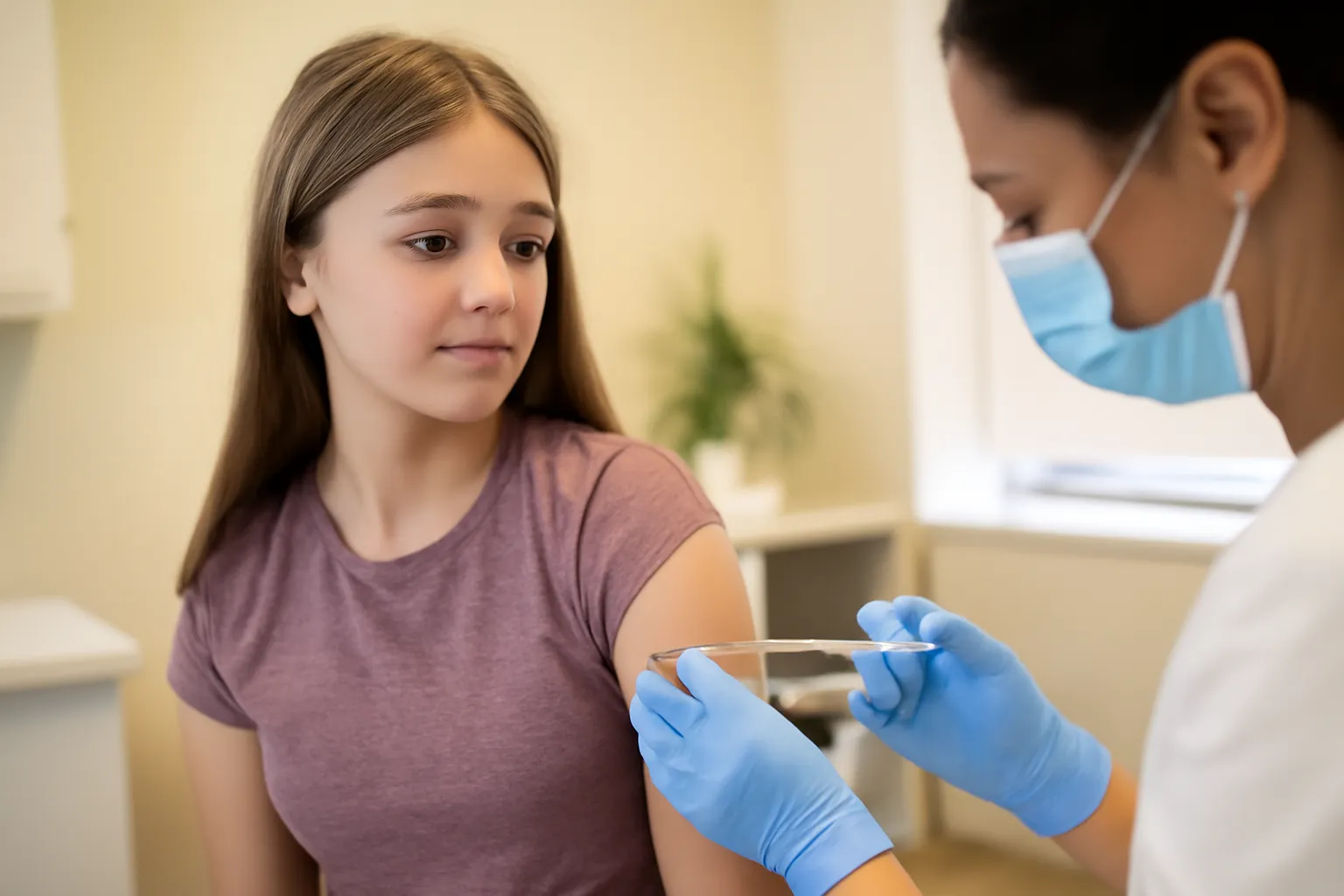Vaccination is one of the most effective ways to prevent disease, and for middle school students, staying up-to-date with required vaccines is crucial. These vaccines protect against serious, potentially life-threatening diseases and help maintain a healthy school environment. But what exactly are the vaccinations required for middle school students, how much do they cost, and why are they so important? In this article, we will explore these aspects in detail.
Vaccination Required for Middle School Students
Vaccinations are not only vital for individual health but also play a key role in protecting public health by preventing the spread of diseases. For middle school students, there are specific vaccines that are required by law or recommended to ensure they are protected as they grow.
The vaccines typically required for middle school students include:
-
Tetanus, Diphtheria, and Pertussis (Tdap)
This combination vaccine is a requirement for students entering middle school, typically around ages 11 to 12. It helps protect against three serious diseases—tetanus (lockjaw), diphtheria, and pertussis (whooping cough). -
Meningococcal Vaccine
The meningococcal vaccine protects against meningitis, a dangerous infection that can cause brain damage or death. It is usually required for children entering middle school or high school. -
Human Papillomavirus (HPV) Vaccine
The HPV vaccine is often recommended for both boys and girls to prevent types of HPV that can lead to cancer, including cervical cancer. It is not always required by law but is strongly recommended. -
Varicella (Chickenpox) Vaccine
If a student hasn’t had chickenpox or received the chickenpox vaccine earlier in life, they may be required to get this vaccine before entering middle school.
These vaccinations are essential to protect your child from potentially serious diseases and to keep the broader community safe by maintaining herd immunity. Schools often require proof of vaccination before a child can attend, ensuring that students are protected against these preventable illnesses.
To learn more about vaccination schedules and requirements, it’s best to check with your local health department or the school district, as specific requirements may vary by location.
Middle School Students Essential Vaccination Costs
Vaccination costs can vary widely, depending on factors like insurance coverage, the healthcare provider, and your geographic location. However, understanding the typical costs can help parents plan for these necessary health measures.
Cost Breakdown for Vaccinations:
-
Tdap Vaccine
The cost of the Tdap vaccine is typically between $40 to $80 per dose without insurance. However, most insurance plans, including Medicaid, cover the cost of vaccines for children, so many parents won’t pay out-of-pocket. -
Meningococcal Vaccine
This vaccine may cost between $100 and $150 per dose. Again, insurance often covers this expense, but it’s important to check with your provider to confirm coverage. -
HPV Vaccine
The cost of the HPV vaccine series, which consists of multiple doses, can range from $130 to $200 per dose. The full vaccination series typically costs between $390 and $600. Some health insurance plans cover the full cost, and there may also be government programs available to assist with costs. -
Varicella Vaccine
The cost for the chickenpox vaccine is usually around $100 per dose, and like other vaccines, it is often covered by insurance.
Ways to Lower Vaccination Costs:
-
Insurance Many health insurance policies cover vaccinations as part of routine health care.
-
Vaccination Programs Programs such as the Vaccines for Children (VFC) program in the U.S. offer free vaccines for children who qualify based on income or other criteria.
-
Community Health Clinics Some public health clinics offer vaccinations at reduced or no cost to families who meet certain income guidelines.
By taking advantage of these resources, parents can help reduce the financial burden of essential vaccinations.
Why Middle School Students Essential Vaccination is Important
The importance of vaccination in middle school students cannot be overstated. As children approach adolescence, they face new health challenges, including exposure to diseases that are common in schools and other community settings. Vaccinations are a simple, effective way to protect them.
Key Reasons Why Vaccination is Important:
-
Prevention of Serious Illnesses
Vaccines protect against diseases that can cause severe health problems, long-term disability, or even death. For example, pertussis (whooping cough) can cause prolonged coughing fits and, in some cases, hospitalization. Meningitis can lead to brain damage or death if not treated promptly. -
Protecting Others
Vaccinating children not only protects them but also helps prevent the spread of diseases to more vulnerable individuals, such as infants, elderly people, and those with compromised immune systems. By vaccinating, you contribute to the concept of “herd immunity,” which protects everyone in the community. -
Meeting School Requirements
Many schools require proof of vaccination before a child can attend classes. If your child is not vaccinated, they might be excluded from school until they are up to date, which can disrupt their education. -
Long-Term Health Benefits
Vaccines are one of the best ways to ensure long-term health. For example, the HPV vaccine helps prevent certain types of cancer later in life, and the meningococcal vaccine protects against bacterial infections that can have lasting consequences.
Conclusion
Ensuring that middle school students receive the essential vaccinations is a critical step in safeguarding their health and well-being. Vaccines like Tdap, meningococcal, HPV, and varicella help prevent serious diseases and keep children safe in school environments. While the costs of vaccinations can vary, there are resources available to help reduce these costs. Ultimately, the benefits of vaccination far outweigh the risks, offering both individual protection and broader community health benefits. For more detailed information on vaccination schedules and costs, make sure to consult your healthcare provider or local health department.
“An ounce of prevention is worth a pound of cure,” as Benjamin Franklin wisely said. Vaccinations are the ounce of prevention that can protect your child for a lifetime.






